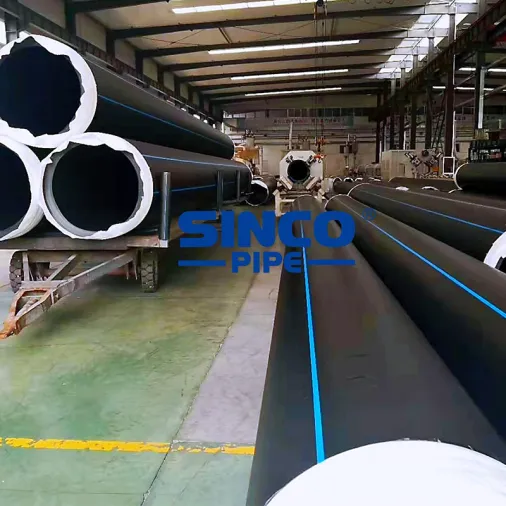Your Position: Home - Construction & Real Estate - The Superiority of HDPE Pipes in Potable Water Systems
In the realm of potable water systems, the choice of piping material plays a pivotal role in ensuring the delivery of safe and clean water to consumers. High-Density Polyethylene (HDPE) pipes have emerged as a preferred and reliable option for such applications, owing to a myriad of advantages that set them apart in terms of durability, safety, and efficiency.
1. Corrosion Resistance: One of the primary reasons HDPE pipes stand out in potable water systems is their exceptional resistance to corrosion. Unlike metal pipes, which are susceptible to rust and degradation over time, HDPE pipes maintain their structural integrity even in the face of aggressive water compositions. This corrosion resistance ensures the water quality remains untarnished throughout the pipes' service life.
2. Leak-Free Joints: The method of joining HDPE pipes, known as heat fusion, creates seamless and leak-free joints. This is of paramount importance in potable water systems where any form of leakage can compromise water quality. The absence of joints susceptible to corrosion or wear-and-tear enhances the overall reliability of HDPE piping systems.
3. Durability in Challenging Environments: HDPE pipes exhibit an impressive resistance to impact and are capable of withstanding external loads and ground movement. This characteristic makes them especially suitable for regions with challenging terrains. Whether faced with seismic activity or soil instability, HDPE pipes provide a robust and reliable conduit for potable water.
4. Smooth Interior Surface: The smooth interior surface of HDPE Water Supply pipes not only facilitates a consistent and efficient flow of water but also minimizes friction and turbulence. This feature reduces the likelihood of sediment buildup and bacterial growth, further ensuring the delivery of clean and clear water to end-users. The smoothness of the interior surface also contributes to the overall longevity and efficiency of the piping system.

5. Flexibility for Easy Installation: HDPE pipes are renowned for their flexibility, which simplifies transportation and installation. The ability to be coiled facilitates handling and transportation, making them a practical choice for projects in diverse geographical locations. The flexibility of HDPE pipes is a distinct advantage, particularly in areas where the installation might encounter twists, turns, or changes in elevation.
6. Long Service Life: Investing in infrastructure with a long service life is a priority for any potable water system. HDPE pipes boast a lifespan exceeding 50 years, surpassing the longevity of many alternative materials. This extended service life not only ensures long-term reliability but also minimizes the need for frequent replacements, translating into cost savings over the life of the infrastructure.
7. Resistance to Biological Growth: The resistance of HDPE to biological growth, including algae and fungi, is another critical factor for maintaining water quality. In potable water systems, where microbial contamination is a constant concern, the inherent properties of HDPE pipes contribute to the prevention of biological growth within the piping network.
8. Lightweight and Cost-Effective: The lightweight nature of HDPE pipes simplifies handling, transportation, and installation processes. This characteristic not only contributes to ease of use but also reduces installation costs. The combination of durability, efficiency, and cost-effectiveness makes HDPE pipes an economically viable choice for potable water systems.
In conclusion, the superior attributes of Sinco HDPE pipes make them an excellent choice for potable water systems. Their corrosion resistance, leak-free joints, durability, smooth interior surface, flexibility, long service life, resistance to biological growth, and lightweight nature collectively position HDPE as a reliable and efficient solution in the vital task of ensuring the availability of clean and safe drinking water to communities around the world.
426
0
0
Comments
All Comments (0)